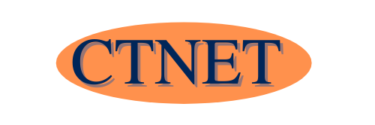In this article, I’ll explore a question that came to me several months ago after reading a few books and articles regarding different digital note-taking strategies, such as Tiago Forties’ book on the second brain and some articles about the concept of having a digital garden.
Tiago Forte PARA method, the digital garden or the method I use, Zettelkasten, share at least one common concept in the digital age. It can help you filter out what is important from all the surrounding noise.
What is Information overload?
To help me consider whether Information overload is preventing an information golden age, we need to consider how things have changed during my life and see if that offers any fresh insights.
How did we get to information overload?
I’m in my 50s, so I’m old enough to remember a time before the Internet. The only way to learn new things was to go to school, read a book, or watch documentaries on television.
In 1990 the World Wide Web was invented, making it even easier to access information digitally. It fuelled the exponential growth of the Internet, and information and knowledge became easy to access for many.
As I said in my beginner’s guide to the Internet, I like to think of the Web as an online library containing the sum of all human knowledge. That is why I would argue that those of us who have easily available access to the Internet are enjoying an information golden age.
As I laid out this discussion piece, I had originally planned to argue that information overload prevents an information golden age. As I write this article, I realise that information overload is the downside of living in an Information golden age.
Information overload defined
In Tiago Forte’s second brain, he states that too much information can lead to us experiencing stress, which reduces our capacity to process the information we are presented with. Simply put, we didn’t evolve to handle all the information we now face.
I find it easier to manage information overload when I’m the one looking for the information when it is me going to a search engine and typing the query. Yes, there is a skill to this, and you can still do an Alice and go down the proverbial rabbit hole, but at least you have some ambience of control.
The problem is that with the modern Web, most of the information you access is pushed to you through social media posts, email, podcasts, YouTube videos, etc.
The question is, how do we manage all this information being sent to us?
Is it time to get out of the stream?
In his blog post The Garden and Stream a Technopastoral, Mike Caulfield compares the pushing of web content, such as social media traffic, towards you like a stream, as information passes us by at the time of consumption. I think this is true for all information unless you can capture it.
The stream of information causes information overload, drowning us in all the information we will never need as it rushes past us like our very existence.
As Marcus Aurelius, former Roman emperor, put it. “Keep in mind how fast things pass by and are gone—those that are now and those to come. Existence flows past us like a river: the “what” is in constant flux, and the “why” has a thousand variations. Nothing is stable, not even what’s right here. The infinity of past and future gapes before us—a chasm whose depths we cannot see.”
While we cannot do anything about our existence flowing past us, we can at least look to introduce systems to reduce our information overload and capture the information we are each interested in.
The information we want to capture will be different for each of us, depending on our interests and what we hope to do with it. Still, I think it’s something all of us have to consider. Whether we like it or not, we live in a digital world in which information has value.
To manage the information flowing past us and capture that likely to have value, we should create a personal knowledge management system that will act as a reservoir storing all the information we want later.
A few personal knowledge management systems exist, such as Zettelkasten, Tiago Forte PARA and the Digital Garden.
Conclusion
In this article, I have discovered that those of us with Internet access live in an information golden age. Even though that hadn’t been my initial thought. Information overload is a product of the information golden age we are living through.
We need to work towards solving information overload. At least in part, this problem can be solved by developing a system that will help us capture the information we come across and deem important. This captured information should then feed into our personal knowledge management system.
Each person’s system will be individual to them, but there will also be some common ground. If you are interested, I will share an article I wrote on my personal productivity and knowledge management system in 2024.
Last updated 05/06/2024
